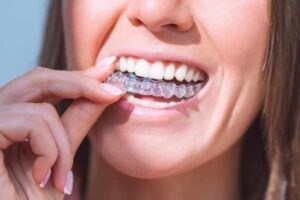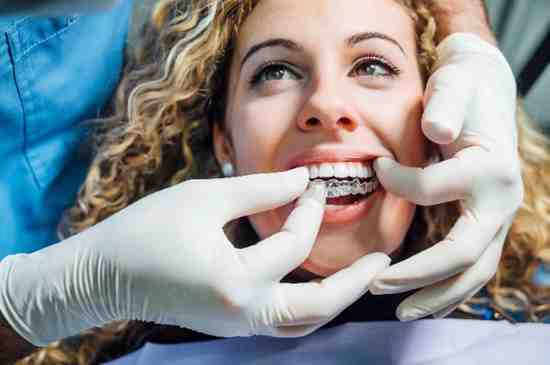Orthodontic treatment is usually planned and predictable—but sometimes things go off track. A loose bracket, a poking wire, or sudden pain can make even the calmest patient panic. When that happens, knowing what qualifies as urgent and what you can do at home really matters. This guide breaks it all down in a way that’s practical, stress-free, and easy to follow.
When Braces Break: Is It an Emergency?
A broken bracket or wire might not seem serious, but it can cause real discomfort—or worse, disrupt your treatment. An emergency dentist in Horsham can step in when the issue can’t wait until your next scheduled visit.
Common Orthodontic Emergencies
- Loose wires – These can poke into cheeks or gums, causing ulcers or bleeding.
- Dislodged brackets – May move around or irritate soft tissue, especially when eating.
- Broken elastics or bands – Can impact how pressure is applied to your teeth.
- Retainer damage – Cracks or warping can alter your bite or alignment.
When to Act Fast
- Persistent bleeding or pain
If you’re experiencing ongoing pain or bleeding from your gums or around an orthodontic appliance, it’s time to take it seriously. This can indicate tissue damage, an ill-fitting brace, or even gum disease. Don’t try to “wait it out” — an emergency dentist in Horsham can assess the cause and offer relief. Ongoing discomfort is never something to ignore. - Swelling or signs of infection
Swelling around your jaw, cheeks, or gums can be an early sign of infection, especially if it’s paired with warmth, redness, or pus. You might also notice a bad taste in your mouth or a fever. If left untreated, dental infections can spread quickly. Contact an emergency dentist in Horsham immediately to prevent complications. - Difficulty eating or speaking
When dental appliances like braces or retainers affect your ability to chew or speak comfortably, it’s not just inconvenient — it could delay your treatment progress. Issues with your bite, loose wires, or misalignment might be the cause. Getting prompt care from an orthodontist Horsham ensures things don’t spiral into bigger setbacks. - Sudden shift in tooth position
Noticing a sudden movement in your teeth could mean that a bracket has loosened or your retainer isn’t working properly. This shift can undo weeks or even months of progress. A quick visit to an orthodontist Horsham can help correct the problem before it worsens. The sooner you act, the better the outcome.
Don’t try to fix these at home—reach out to an emergency dentist in Horsham to avoid worsening the issue.

At-Home Relief While You Wait
Not all orthodontic mishaps require a same-day appointment. But you can still make yourself more comfortable while waiting to see your orthodontist Horsham.
Temporary Fixes and Relief Options
|
Problem |
What You Can Do |
| Poking wire | Use orthodontic wax or gently bend it away with a clean pencil eraser |
| Loose bracket | Slide it back in place if possible and cover with wax |
| Soreness | Use paracetamol or ibuprofen (never aspirin for children or bleeding) |
| Swelling | Apply a cold compress to the outside of your cheek |
| Irritation | Rinse with warm salt water to soothe soft tissue |
Always follow product dosage instructions and consult your pharmacist if unsure. This advice is not a substitute for professional dental care.
When Your Retainer Isn’t Right
A damaged or ill-fitting retainer might not be painful, but it can cause long-term harm if ignored. If your retainer feels different or no longer fits properly, your treatment could be at risk.
Your orthodontist Horsham may advise wearing it only part-time, provide a replacement, or make adjustments. But if your bite suddenly feels wrong or you notice gaps forming, it’s best to treat this as an urgent concern—particularly if you’re between appointments.

Sudden Tooth Movement: A Hidden Sign
If your teeth begin shifting noticeably and you haven’t changed your appliance routine, something may be wrong with the pressure system in your braces or aligners. This could mean a wire has snapped or a bracket is no longer effective.
Only your orthodontist Horsham can determine whether it’s an emergency or a fix that can wait. Either way, don’t delay reporting it—time matters when it comes to controlled orthodontic movement.
Know What’s Normal—and What Isn’t
It’s natural to feel some soreness after an adjustment. But how do you tell the difference between normal discomfort and something that warrants an urgent visit to an emergency dentist in Horsham?
Mild Discomfort (Usually Normal)
- Tender teeth after wire tightening
It’s normal to feel some tooth tenderness after your orthodontist Horsham tightens your wires. This sensation usually lasts 1–3 days and is a sign that your braces are working to move your teeth. Stick to softer foods, and try paracetamol or ibuprofen (following the dosage guidelines) for relief if needed. Avoid biting into anything too firm during this period. - Slight gum irritation
Mild gum soreness or redness can occur when new pressure is applied, or when brackets and wires shift position. A saltwater rinse can help soothe irritation, and keeping up with gentle brushing and flossing is essential to prevent inflammation. If discomfort lasts longer than a few days, consult your orthodontist Horsham for advice. - Trouble chewing solid foods for a day or two
After adjustments, it’s best to give your mouth a break. Chewing can feel uncomfortable, especially with tougher or crunchy foods. Opt for mashed potatoes, soup, pasta, or yoghurt to stay nourished while your mouth recovers. Things usually return to normal within 48 hours — but if not, your orthodontist Horsham may need to check for any issues.
Concerning Symptoms (Call Immediately)
- Sharp, stabbing pain
- Swelling in the jaw or face
- Bleeding that doesn’t stop
- A metallic taste (could indicate broken metal parts or blood)
Your orthodontist Horsham can help rule out serious problems or arrange follow-up care.
How to Prevent Future Orthodontic Emergencies
You can avoid many problems with a few daily habits and precautions. While some issues are unavoidable, being proactive helps reduce risks.
Preventive Tips
- Brush and floss carefully – Take extra time to clean around brackets and wires.
- Avoid chewy or crunchy foods – Things like toffees, popcorn, or crusty bread can break appliances.
- Use a mouthguard – Especially if you play sports or grind your teeth at night.
- Keep your check-ups – Regular visits to your orthodontist Horsham catch problems early.
- Store retainers safely – Always in a case, not napkins or pockets.
Small steps like these keep your treatment on schedule—and your smile protected.
Conclusion
Orthodontic problems don’t always follow your appointment calendar—but that doesn’t mean you’re on your own. When unexpected pain, breakage, or movement occurs, knowing when to seek help from an emergency dentist in Horsham can make all the difference. For expert advice and rapid support, the team at EDH is here to help you stay on track with your treatment and get your smile back to comfort—fast.









